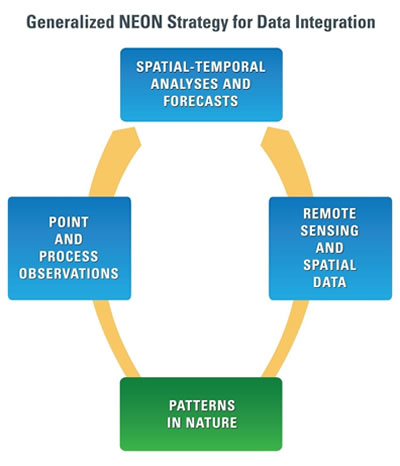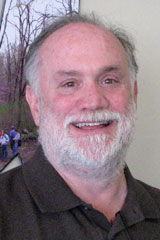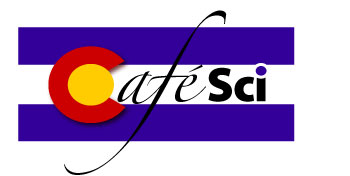About the topic
Bio
Get the Flyer (pdf)
About the topic
 The biosphere is the living part of Earth.; those of a more mystical turn of mind call it Gaia. It is one of the planet's most complex systems, with countless internal interactions among its components and external interactions with the Earth's physical processes and its oceanic and atmospheric environments. In an era of dramatic changes in land use and other human activities, understanding the responses of the biosphere to human drivers of environmental change is both an intellectual grand challenge and a practical necessity. Humans depend on a diverse set of biosphere services and products, including food, fiber, and fuel, and are dependent upon the maintenance of air and water quality. These services and products are strongly affected by the human drivers of change, drivers such as climate change, land use and management, air pollution, and water management. Enhancements or disruptions of these services by human-caused environmental change could alter the fundamental trajectory of the human endeavor over large parts of the world.
The biosphere is the living part of Earth.; those of a more mystical turn of mind call it Gaia. It is one of the planet's most complex systems, with countless internal interactions among its components and external interactions with the Earth's physical processes and its oceanic and atmospheric environments. In an era of dramatic changes in land use and other human activities, understanding the responses of the biosphere to human drivers of environmental change is both an intellectual grand challenge and a practical necessity. Humans depend on a diverse set of biosphere services and products, including food, fiber, and fuel, and are dependent upon the maintenance of air and water quality. These services and products are strongly affected by the human drivers of change, drivers such as climate change, land use and management, air pollution, and water management. Enhancements or disruptions of these services by human-caused environmental change could alter the fundamental trajectory of the human endeavor over large parts of the world.
A wide range of biotic and physical processes link the biosphere, geosphere, hydrosphere and atmosphere. Despite this link, our understanding of the biosphere does not match our increasingly sophisticated understanding of Earth's physical and chemical dynamics at regional, continental, and global scales. Because many Earth system dynamics occur at large scales, they cannot be investigated with disconnected studies on individual sites or over short periods of observation. The National Ecological Observatory Network (NEON) is a bold effort to build on recent progress in many fields to open new horizons in the science of large-scale ecology. NEON science focuses explicitly on questions that relate to grand challenges in environmental science, are relevant to large regions, and cannot be addressed with traditional ecological approaches. To enable broad engagement with NEON science, NEON facilitates public understanding of ecological science and provides tools for students, scientists, educators and decision makers to use NEON data to make informed decisions about ecological issues. NEON is based on a multiscaled sampling strategy, employing systematically deployed ground-based sensors, high-resolution airborne sensors, and integration with national geospatial information (see the Figure).
NEON must observe both the human drivers and biological consequences of environmental change. Environmental monitoring networks typically observe either the cause (for example climate, air pollution or satellite-based land cover change) or the consequences (for example biological cycles or avian populations). Rarely do environmental networks provide integrated observations of aspects of both cause and effect to allow increased understanding of the underlying processes. NEON is unique in that it observes both a suite of key causes of environmental change (climate, land use, invasions) and a wide range of consequences. Because NEON links cause and effect, NEON operates as a research system and not an environmental monitoring program.
Bio
 Dave Schimel brings a wealth of relevant experience to his work at NEON; he served as a Senior Terrestrial Scientist in NCAR’s Climate and Global Dynamics Division for 16 years, and was Founding Co-Director of the Max-Planck Institute for Biogeochemistry. Dave is one of the recipients of the Nobel Peace Prize for his work in 2007 on the Intergovernmental Panel on Climate Change report, and has authored more than 150 papers on biogeochemistry, climate impacts on ecosystems, and the global carbon cycle. Dave also serves as the Editor in Chief of Ecological Applications for the Ecological Society of America.
Dave Schimel brings a wealth of relevant experience to his work at NEON; he served as a Senior Terrestrial Scientist in NCAR’s Climate and Global Dynamics Division for 16 years, and was Founding Co-Director of the Max-Planck Institute for Biogeochemistry. Dave is one of the recipients of the Nobel Peace Prize for his work in 2007 on the Intergovernmental Panel on Climate Change report, and has authored more than 150 papers on biogeochemistry, climate impacts on ecosystems, and the global carbon cycle. Dave also serves as the Editor in Chief of Ecological Applications for the Ecological Society of America.
Dave earned a BA from Hampshire College, Amherst, Massachusetts, and a PhD from Colorado State University.
His career has focused on the large-scale relationships of land management and climate change on ecosystem processes and includes expertise in managing large, complex research projects, remote sensing, data management, modeling, and the application of ecological research to science policy development. Dave served as CEO of NEON from 2006 to 2011, overseeing NEON's design and development phase to successful completion. That done, he now serves NEON as Chief Science Officer and Principal Investigator.

